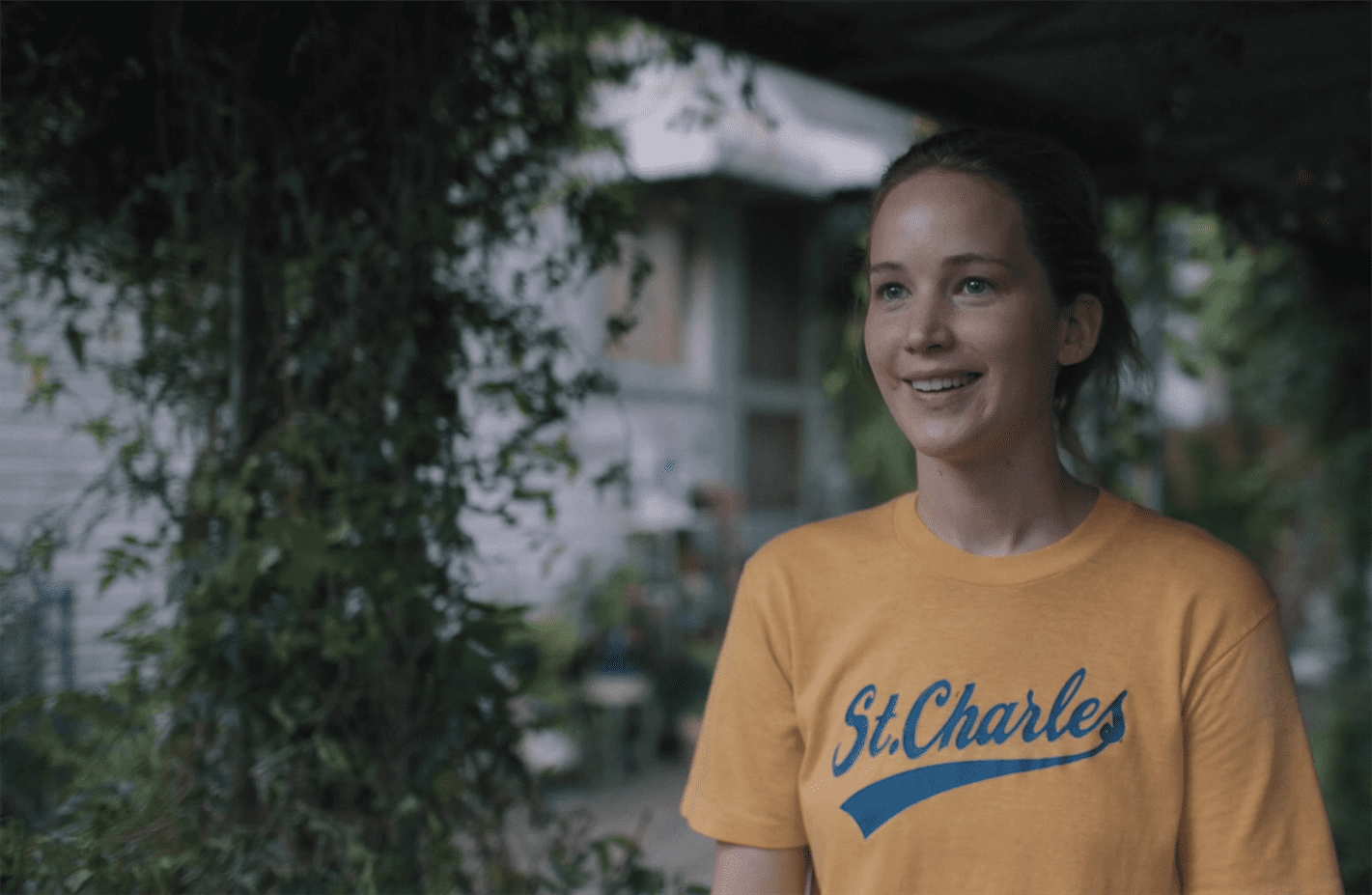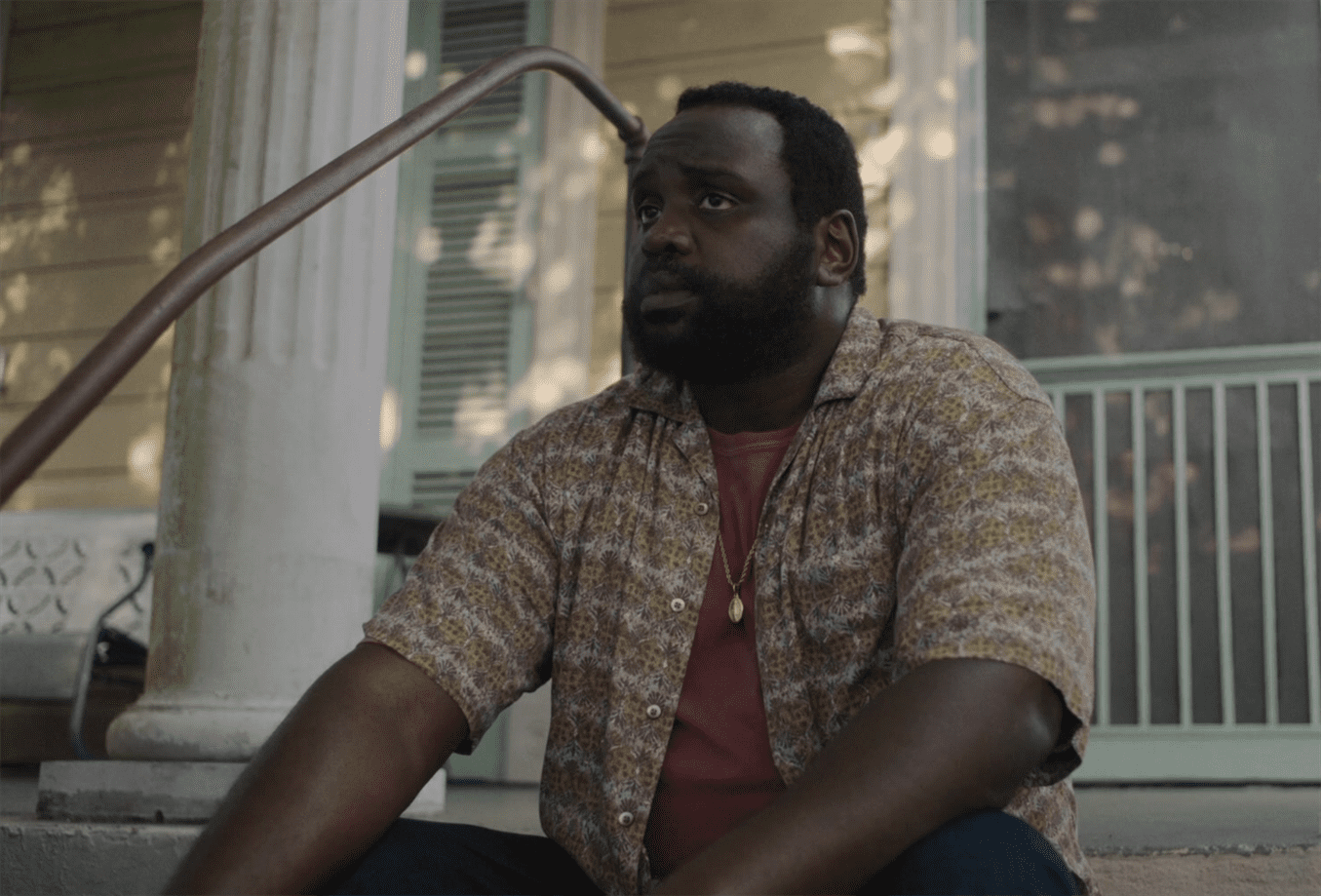Fine-tuned performances from both Jennifer Lawrence and Brian Tyree Henry powerfully highlight the quiet ramifications of life trauma in A24’s “Causeway.”
The film follows Lynsey (Lawrence), a U.S. soldier who returns back home to New Orleans after a traumatic brain injury during her tour in Afghanistan. Back in her hometown, Lynsey finds herself living under the same roof with her mother (Linda Emond) while working as a pool cleaner. At the same time, Lynsey is headstrong and committed on working hard to apply for redeployment.

The film follows Lynsey (Lawrence), a U.S. soldier who returns back home to New Orleans.
Photo courtesy of A24
Soon, she encounters a car mechanic named James (Henry) who offers her companionship. As their friendship grows, Lynsey discovers that James exhibits a lot of the same traumatic effects that she experiences. Together, they form a bond that paves a road toward recovery and acceptance.
The film does a great job of centralizing the haunting effects of trauma around its characters. Ultimately, “Causeway” is a film about the bond developed between two broken people with deep-rooted trauma. The unlikely friendship shared between them is captivating and intimate, one that leads to emotional recovery. Their interactions and conversations are the key storytelling elements that drive the plot to its ambitious conclusion.
While the film showcases outstanding examples of residual trauma from the two characters’ behaviors, it’s especially evident in Lynsey. Lawrence does a perfect job of capturing the quiet moments of melancholic reflections and destructive grief throughout the film. Lila Neugebauer, the director, really isolates Lynsey in so many visually alluring sequences to amplify the overall theme of personal trauma.
Credit to Lawrence, her facial expressions are unmatched as they carry such a heavy purpose of displaying mental troubles. There are multiple instances where Lawrence’s non-verbal deliverance contains more substance than the dialogues themselves. She devotes so much passion to this distressed character, illustrating Lynsey as realistically as possible.
While Lawrence shines as a lead, Henry’s supportive performance effortlessly complements her dramatic portrayal. Henry excels in lightening the comprehensive subject matter with occasions of subtle dialogic humor. Generally, the film is filled with casual banter between the two characters, but when there is a need for a dramatic undertone, both Lawrence and Henry splendidly keep up with the pace, maintaining their pitch-perfect balance.

Brian Tyree Henry plays a car mechanic.
Photo courtesy of A24
Although Henry charmingly plays a light-hearted character, there is a particular scene in the middle of act two when James recalls his trauma story; this is where Henry unveils his range as a talented actor. From his quiet expression to the words he exhales, Henry really taps into his dramatic acting persona, delivering such a jaw-dropping presence. At some points, Henry even surpasses Lawrence’s performance, marking him as the glue that keeps this movie together.
Aside from the impressive performances from the two characters, the film does falter in its writing. The story is semi-general and predictable as any other personal trauma narrative. There are enough nuances that surface throughout the film to distinguish itself from others, but somehow, the movie still feels familiar. The pace is also problematic at some points with some sequences perceived to be long and unnecessary.
“Causeway” does have good intentions, but some choices were questionable, leaving the experience a bit clunky. Some plot devices are not really explained or paid off by the end of the film, so the whole story does have a few questions being raised. The film only has a runtime of 92 minutes, but at times, some viewers might feel it’s longer than its intended duration.

The film does a great job of centralizing the haunting effects of trauma around its characters. Photo courtesy of A24
Despite its flaws, the film illustrates a charming friendship between two troubled individuals that feels incredibly real—one that keeps viewers entertained and engaged. Moreover, the film is a statement for Lawrence’s return back to her indie roots, embodying herself in more dramatic, grounded roles. As for Henry, this is one of the Oscar-worthy performances of the year, displaying such a magnetic presence overall.
While it may not check all the boxes, “Causeway” is still an admirable inspection of life trauma and its lingering effects, brought to new heights by its compelling, remarkable performances.



